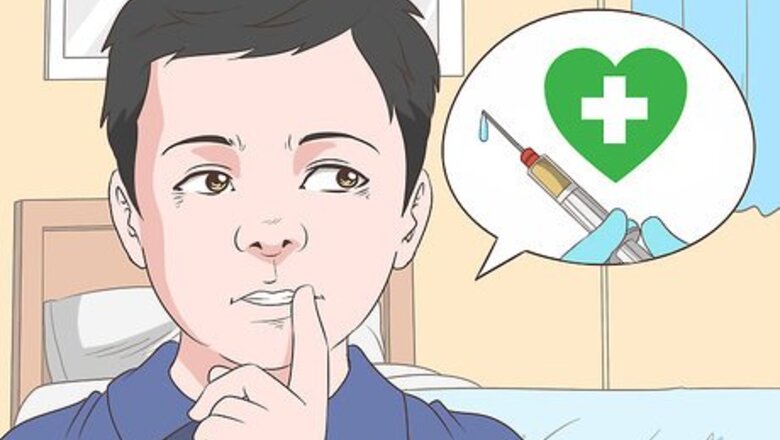
views
Engaging Your Fear
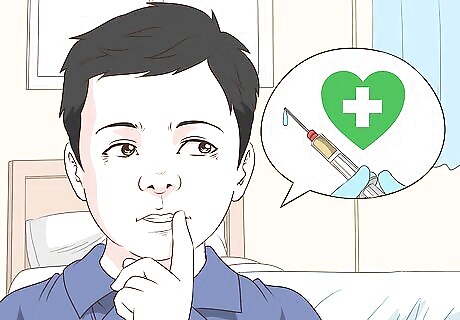
Work on changing your mindset. Often, the best way to get started overcoming any fear is to try to change how you think about that thing. For instance, thinking, "Needles are the worst," or "I'm terrified of needles," only reemphasizes that fact for you. Instead, say things like, "A needle might hurt a bit, but it protects my health."
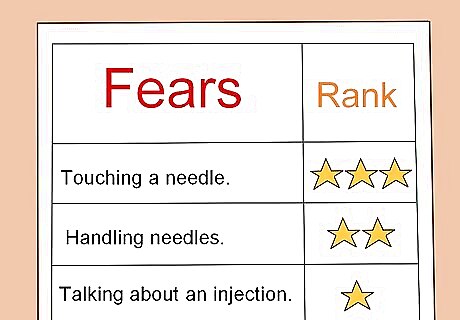
Write down situations that make you afraid. For some people, even seeing a picture of a needle can make them shudder. Write down the situations that make you quiver when it comes to needles, such as seeing a picture of one, watching an injection on television, watching someone else get pricked, and getting an injection yourself. Some other situations you might consider include handling needles, hearing someone talk about an injection, or just touching a needle. Rank these in order from the situation you're the least fearful into the situation you're the most fearful in.
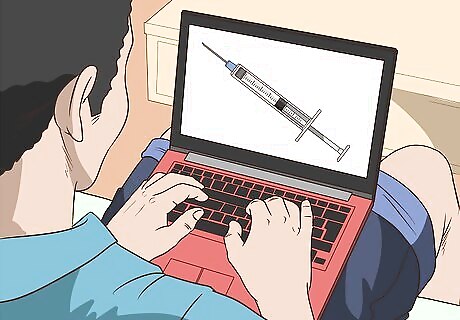
Start small. Begin with the situation you're the least fearful of. For instance, if pictures of needles bother you the least, try looking up some on the internet. Let your anxiety build up to its peak. Don't stop looking until you feel your anxiety easing up, as it will eventually do. After you're done, give yourself a chance to relax.
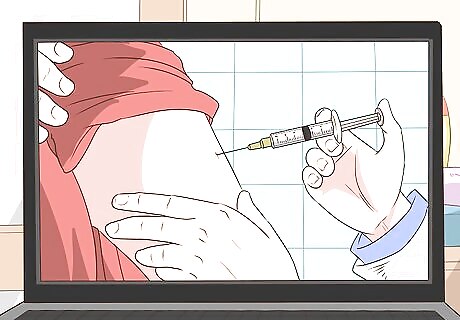
Work up the levels. Once you've worked through one situation, move on to the next. For instance, maybe your next level is seeing someone getting injected with a needle on television. Try watching videos on the internet or a medical show. Practice the same technique of letting your anxiety rise and naturally fall on its own.
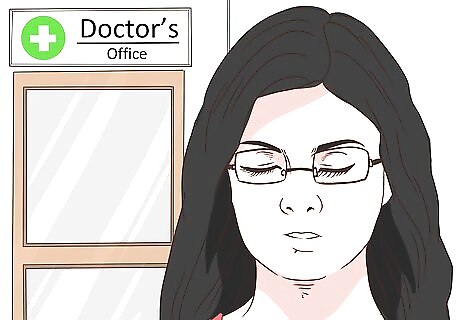
Keep working through each level. Keep working up through your fearful situations, until you're ready to try getting an injection. First, try walking yourself through it in your imagination, letting your anxiety rise and calm down. Then, when you're ready, try a doctor's office.
Learning Relaxation and Coping Techniques
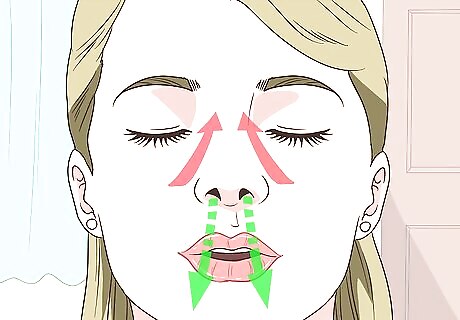
Breathe through it. One way to cope with anxiety is to learn breathing techniques you can use while having blood drawn or getting an injection. Try closing your eyes, and breathing in through your nose. Take a deep slow breath, and hold it for four counts. Breathe out slowly through your mouth. Repeat four more times. Use this technique several times a day, so you get used to doing it. Then, when you are faced with a needle, you can use it to calm yourself down.
Lie down during a shot or blood draw. Lie down with your legs elevated to keep yourself from feeling lightheaded during a procedure. Let your medical staff know that needles make you feel faint, and that you’d prefer this position if they don’t mind. Elevating your legs can keep your blood pressure stable, too.
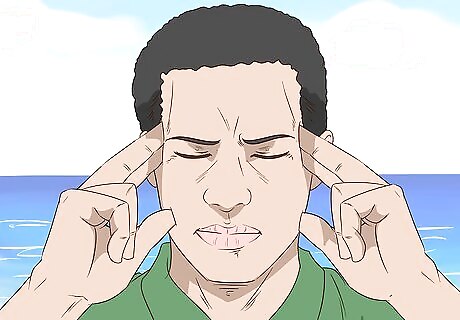
Practice visualization. Meditation can help calm you down, and using visualization to meditate can help distract you. To use visualization, you first need to pick a place that makes you feel happy. It should be a stress-free place, such as a park, a beach, or your favorite room in your house. Close your eyes and imagine yourself in that place. Use all of your senses. What do you see? What do you smell? What can you feel? What can you hear? What can you taste? Build your world with intricate detail. For instance, if you are imagining the beach, think about the sight of the blue waves, the smell of the ocean air, and the feel of the hot sand beneath your feet and the warmth of the sun on your shoulders. Taste the salt in the air, and hear the sounds of the waves crashing on the shore. The better you can picture the place, the better you'll distract yourself.
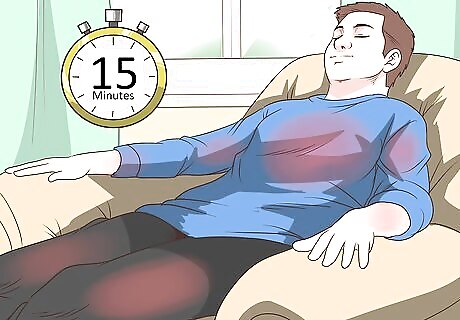
Use applied tension. Some people fear needles because they faint. If that's the case with you, you can use a technique called applied tension, which helps increase your blood pressure. Increasing your blood pressure decreases your chances of fainting. Get comfy where you are sitting. Start by tensing all the muscles in your arms, legs, and upper body. Hold that pose for about 15 seconds. You should start to feel your face get warm. When you do, release your muscles. Rest for about 30 seconds or so, then try again. Practice this technique several times a day to feel at ease with increasing your blood pressure.
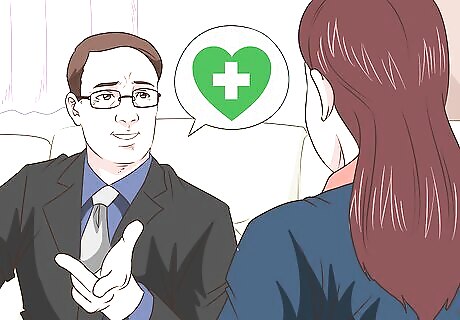
Consider therapy. If you're having trouble figuring out ways to cope on your own, a therapist may be able to help. They can teach you tricks and coping methods to help you get over your fear, as they are trained to help people who have similar issues. Look for a therapist that deals specifically with overcoming fears.
Communicating with the Staff

Discuss your fear with the phlebotomist, nurse, or doctor. Don't hold your fear inside. Instead, talk it out with the person drawing your blood or giving you an injection. It helps them to know because they can try to distract you and make you feel as comfortable as possible. Tell them if you have a specific want, such as if you want warning so you can look away before they bring the needle out. Asking them to count to three before sticking you can also help.
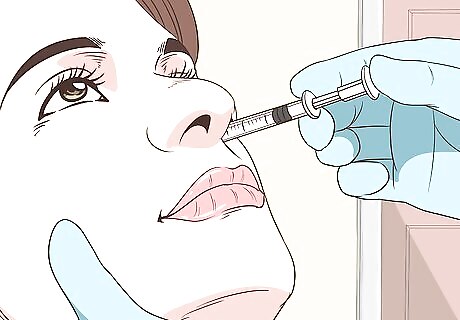
Ask about alternatives. If you are getting a shot instead of having blood drawn, you can sometimes get an alternative form. For instance, flu vaccines can be given through the nasal cavity instead of a shot.
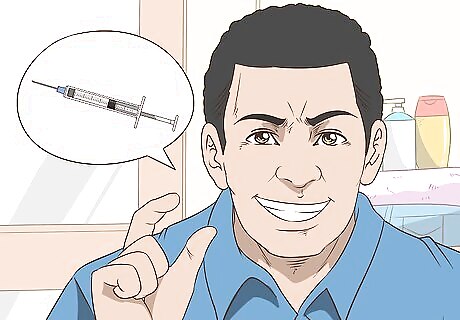
Request a smaller needle. Unless you need a large amount of blood drawn, you can likely get away with a smaller needle, typically a butterfly needle. Ask the person drawing your blood if one will work for your situation, being sure to explain why.
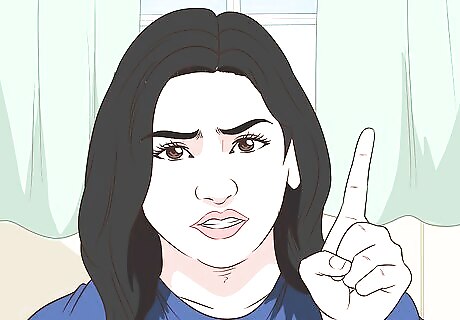
Let them know they only get one chance. If you are afraid of needles, you likely don't want someone poking into your arm again and again. Request that they take all the blood they need the first time they poke you. If your procedure requires multiple needle sticks, ask if you can return another day to complete the blood draw or injections to give yourself a break.
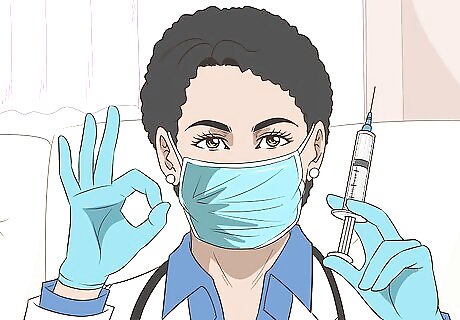
Ask for the best. If you're worried that someone won't do a good job, ask for a technician to do it, particularly if you are at a large facility. If you're afraid, most people will understand why you want an expert who can do it quickly.
Coping at the Doctor's Office
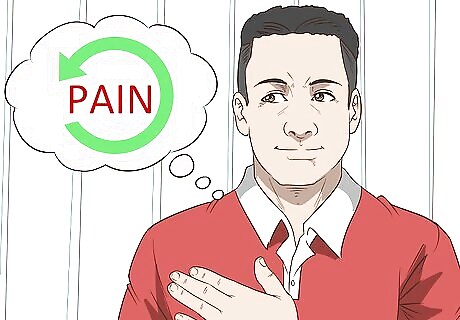
Remind yourself the pain will be over quickly. Even if you are afraid of needles, reminding yourself of how short the pain will last can help. You can say, "It may hurt, but the pain will be over and done within a few seconds. I can deal with that."
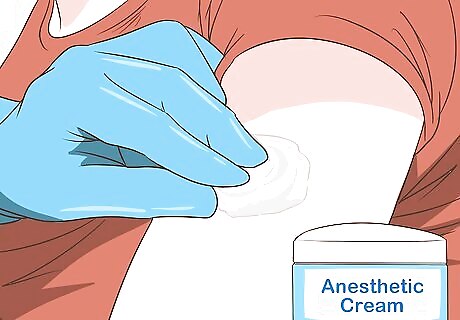
Try an anesthetic cream. An anesthetic cream can numb the area where you are getting injected. Make sure it's okay with the doctor before using it, and ask where you can apply it for the injection. If you don't have an anesthetic cream, try an ice pack or a Buzzy device.
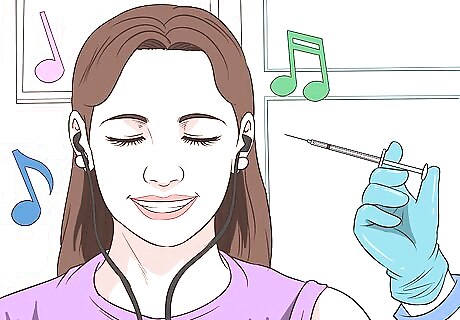
Distract yourself. Distraction can help you cope with getting pricked and poked. Try listening to music, for instance, or even just playing a game on your phone. Bring a book to read, so you don't have to pay attention to what's going on.
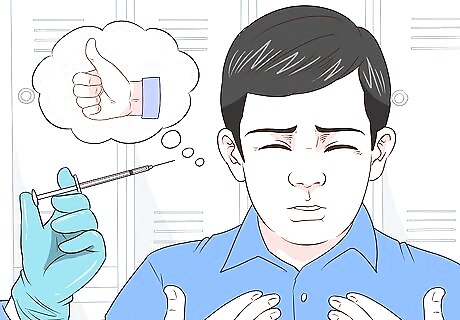
Use a coping technique. Let the medical personnel know what you are going to do, and then go into one of your coping techniques. You can use either the breathing or visualization exercises while you are being pricked, but you should wait until the person is done to try the tension exercise.










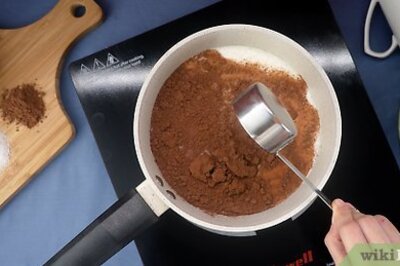





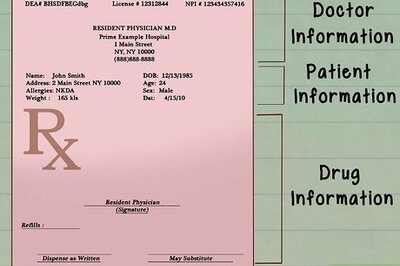

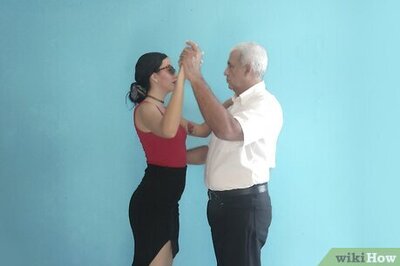

Comments
0 comment